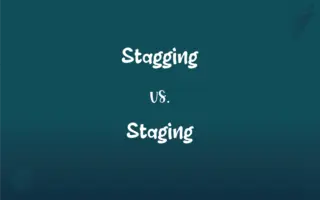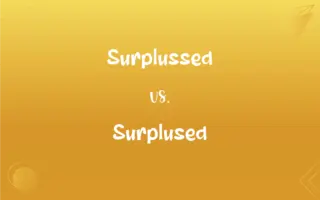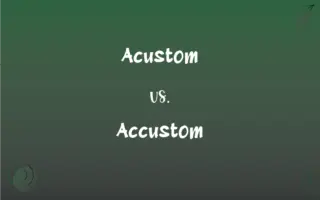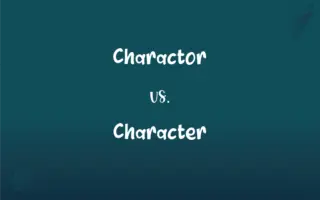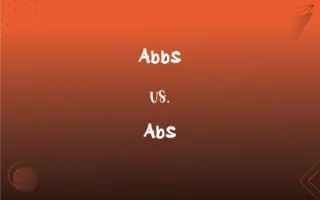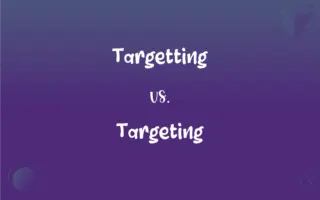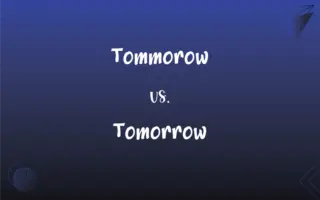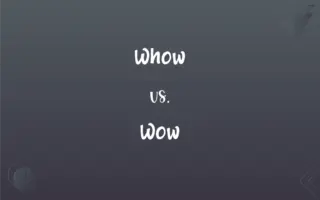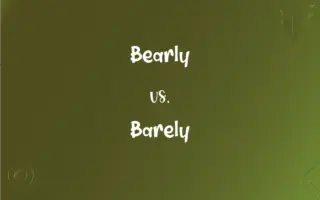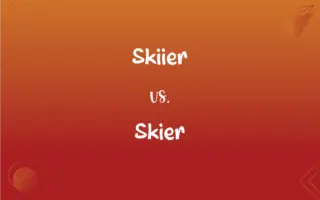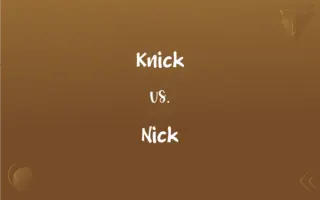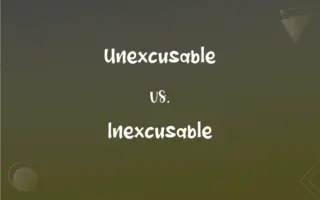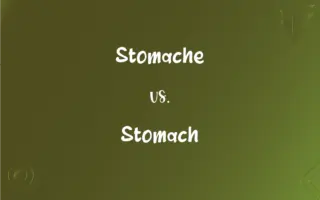Magent vs. Magnet: Mastering the Correct Spelling
Edited by Aimie Carlson || By Janet White || Updated on March 7, 2024
"Magent" is incorrect, while "magnet" is the correct spelling, denoting an object that attracts iron and produces a magnetic field.

Which is correct: Magent or Magnet
How to spell Magnet?

Magent is Incorrect

Magnet is Correct
ADVERTISEMENT
Key Differences
Think of "magnet" as combining "mag" (as in magic) and "net," capturing its magical attraction capability.
Remember that "magnet" has a "g," just like "gravity," which also attracts.
Use the mnemonic "Magnets G(enerate) attraction" to emphasize the "g" in "magnet."
Recall that "magnet" ends in "-net," similar to a net that catches or attracts things.
Associate "magnet" with "magnetic" to remember the correct spelling with "g" instead of "j."
ADVERTISEMENT
Correct usage of Magnet
The magent stuck to the metal desk.
The magnet stuck to the metal desk.
Can you find the magent we used in class yesterday?
Can you find the magnet we used in class yesterday?
He thought the magent could pick up plastic too.
He thought the magnet could pick up plastic too.
She bought a new magent for her fridge collection.
She bought a new magnet for her fridge collection.
The science project involved using a magent to demonstrate magnetic fields.
The science project involved using a magnet to demonstrate magnetic fields.
Magnet Definitions
An object that generates a magnetic field attracting iron, nickel, or cobalt.
He used a magnet to collect the scattered nails.
A material or object that demonstrates magnetism.
A fridge magnet holds notes and reminders securely.
A person or thing that has a large influence or attraction.
The city is a magnet for tourists.
Used metaphorically to describe an entity that attracts or draws in.
The new cafe became a magnet for coffee enthusiasts.
In technology, a device that uses magnetic storage or operates magnetically.
The hard drive uses a magnet for data storage.
An object that has the property, either natural or induced, of sustaining a magnetic field around it. Simple magnets attract metals such as iron and steel.
An electromagnet.
Magnet Sentences
She used a small magnet to hold her drawing on the fridge.
The magnet on the refrigerator door helps it close tightly.
The science museum had a giant magnet that could lift a car.
The magnet attracted all the paper clips on the table.
We used a magnet to find nails in the sand.
They used a powerful magnet to clean up metal scraps in the workshop.
A magnet can also attract some types of rocks.
The teacher showed how a magnet can attract or repel another magnet.
The recycling center uses a large magnet to separate metals from other materials.
I found a horseshoe magnet in our science kit.
Earth is like a giant magnet with a north and south pole.
Magnetic toys can be fun and educational.
A compass works because its needle is a tiny magnet.
The magnet helped him keep his keys in place.
You can use a magnet to test if jewelry is made of real gold or not.
We experimented with a magnet to see which materials it would attract.
The magnet in my pocket picked up some coins.
She bought a magnet shaped like her favorite cartoon character.
The magnet on the back of the badge helps it stick to your shirt.
A magnet can interfere with electronic devices.
You can make a temporary magnet by rubbing a piece of iron with a strong magnet.
He used a magnet to pick up the pin he dropped.
Magnet Idioms & Phrases
Magnet for trouble
Someone or something that always seems to attract trouble or problems.
He's a magnet for trouble, always finding himself in sticky situations.
Be drawn to someone like a magnet
To be very attracted to someone instantly.
As soon as they met, they were drawn to each other like a magnet.
Like a magnet
Attracting someone or something very strongly.
The new video game console was like a magnet to the kids, drawing them in immediately.
Money magnet
Someone who seems to attract money effortlessly.
Her investments make her a real money magnet.
Magnet for the spotlight
A person who always seems to attract attention or fame.
As the star player, he's a magnet for the spotlight.
Magnet for criticism
Someone or something that often receives a lot of criticisms.
The new policy was a magnet for criticism from all sides.
Magnet for controversy
A person or issue that tends to generate a lot of controversies.
The celebrity is a magnet for controversy, always making headlines.
Magnet for success
A person or thing that seems to naturally attract success.
With his innovative ideas, he's a magnet for success in the business world.
Magnet for talent
An organization or place that attracts highly talented people.
The company is known as a magnet for talent in the tech industry.
Magnet for investors
A business or project that attracts a lot of investment interest.
The startup has become a magnet for investors thanks to its innovative products.
Act like a magnet
To behave in a way that attracts certain things or people.
His kindness acts like a magnet, drawing people to him.
Magnet for gossip
A person or situation that seems to attract rumors and gossip.
The mysterious newcomer was a magnet for gossip in the small town.
FAQs
What is the verb form of magnet?
"Magnet" does not have a verb form; it is primarily used as a noun.
Which vowel is used before magnet?
The vowel "a" is used before magnet, as in "a magnet."
What is the root word of magnet?
The root word is "magnētis," from Greek, referring to Magnesia, a region in ancient Greece.
Which preposition is used with magnet?
The preposition "for" is often used with magnet, as in "magnet for attention."
Which conjunction is used with magnet?
The conjunction "and" can be used with magnet.
Is magnet a negative or positive word?
Magnet is neutral; its connotation depends on the context.
What is the pronunciation of magnet?
Magnet is pronounced as /ˈmæɡ.nɪt/.
Is magnet an abstract noun?
No, magnet is a concrete noun as it refers to a physical object.
Why is it called magnet?
It's called a magnet from the Greek word "magnētis lithos," meaning "Magnesian stone," a type of iron ore with magnetic properties.
What is the singular form of magnet?
The singular form is "magnet."
What is the plural form of magnet?
The plural form is "magnets."
What is another term for magnet?
Another term for magnet is "lodestone" or "magnetic material."
How is magnet used in a sentence?
The scientist demonstrated how a magnet can attract iron filings.
Is magnet a noun or adjective?
Magnet is a noun.
Is the magnet term a metaphor?
Yes, "magnet" can be used metaphorically to describe anything that attracts.
Which article is used with magnet?
Both "a" and "the" can be used with magnet, depending on the context.
Is magnet a vowel or consonant?
The word "magnet" starts with a consonant.
Is magnet a countable noun?
Yes, magnet is a countable noun.
Is magnet a collective noun?
No, magnet is not typically considered a collective noun.
Is magnet an adverb?
No, magnet is not an adverb.
How do we divide magnet into syllables?
Magnet is divided into syllables as mag-net.
What is a stressed syllable in magnet?
The first syllable, "mag," is stressed in magnet.
What part of speech is magnet?
Magnet is a noun.
What is the first form of magnet?
"Magnet" is a noun, so it does not have verb forms like first, second, or third form.
What is the third form of magnet?
Similarly, this does not apply to the noun "magnet."
Is the word magnet is imperative?
The word "magnet" itself is not imperative; it's a noun.
What is the second form of magnet?
This does not apply as "magnet" is not a verb.
How many syllables are in magnet?
There are two syllables in magnet.
What is the opposite of magnet?
The opposite of a magnet, in terms of repelling, could be considered "non-magnetic material" or "repellant" in metaphorical use.
Which determiner is used with magnet?
Determiners like "the," "a," "this," or "each" can be used with magnet.
About Author
Written by
Janet WhiteJanet White has been an esteemed writer and blogger for Difference Wiki. Holding a Master's degree in Science and Medical Journalism from the prestigious Boston University, she has consistently demonstrated her expertise and passion for her field. When she's not immersed in her work, Janet relishes her time exercising, delving into a good book, and cherishing moments with friends and family.
Edited by
Aimie CarlsonAimie Carlson, holding a master's degree in English literature, is a fervent English language enthusiast. She lends her writing talents to Difference Wiki, a prominent website that specializes in comparisons, offering readers insightful analyses that both captivate and inform.


